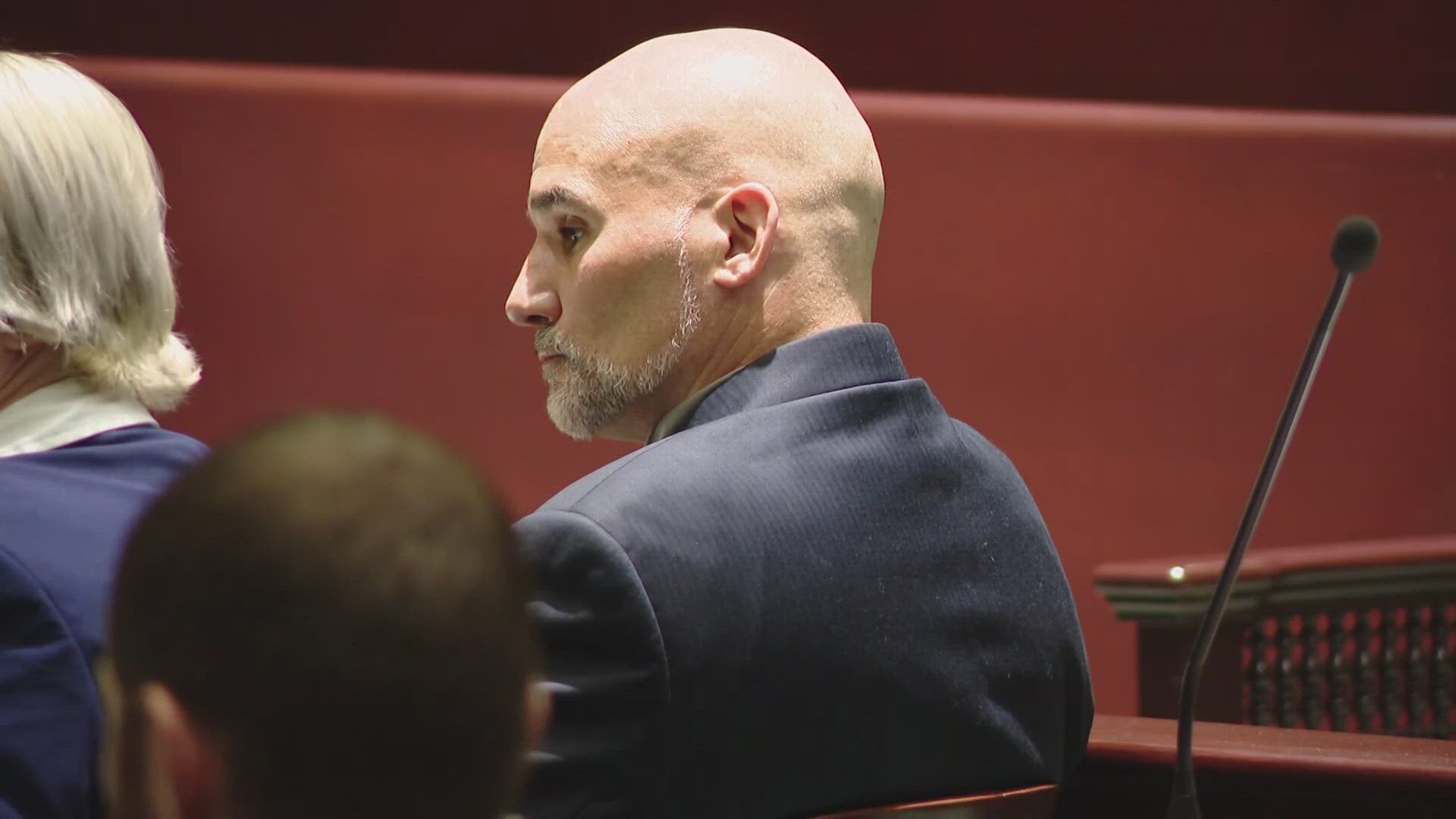CARIBOU, Maine — A Maine judge has rejected a request to dismiss a homicide case against a Houlton man whose attorney argued that the case was tainted because a Maine State Police detective admitted he’d listened to parts of two phone calls the defendant made from jail to his lawyer.
Defense lawyers for Bobby Nightingale, who is indicted in the murders of Roger Ellis and Allen Curtis in 2019, asked the court to dismiss the case in light of the government’s inability to identify the specific confidential phone calls between Nightingale and his attorney that were heard by police.
Superior Court Justice Stephen Nelson ruled prosecutors had not violated discovery rules and that the case will go to trial as scheduled next week, which was first reported by The Bangor Daily News.
“Although it is curious that there was no documentation reflecting that an attorney/client call was included in the recorded calls, there was no evidence presented at the hearing that there existed at any time any form of documentation that was created and not being provided by the state,” Nelson wrote in an Aug. 11 order.
At issue are phone calls Nightingale made to his court-appointed attorney John Tebbetts, of Presque Isle, that were recorded by the Cumberland County Jail and shared with the Maine State Police. State police Det. Greg Roy later reported to prosecutors that he heard parts of the recordings of two of those calls.
Prosecutors provided a CD that contained the second call to the defense team two years ago, but they didn’t identify which of the calls the detective heard or for how long he listened. There are approximately 80 calls on the CD of which the defense has identified three calls between Nightingale and Tebbetts.
“I just don’t know which specific phone call it is,” Tebbetts told the court during an August 4 hearing. “I know there’s two, but there’s a number of other candidates that could be. So it’s hard to articulate which one it is without knowing specifically which day and time. Sometimes there’s multiple phone calls in a single day.”
“We’re trying to look at a needle in a haystack. Multiple needles. We just don’t know which specific needle it is,” Tebbetts added.
Nightingale has pleaded not guilty to allegations that he committed a string of crimes, including burglary, robbery, multiple gun charges, and the shooting of two men in Castle Hill between Aug. 5 and Aug. 13, 2019.
A jury of nine women and seven men, which includes four alternates, were selected this week, The Bangor Daily News reported. Nightingale’s trial is scheduled to begin on Aug. 15.
Nightingale’s lawyers asked the court in July to dismiss the indictment or to require the government to identify the specific phone calls and contents that Roy heard while he was reviewing approximately 100 hours of Nightingale’s phone calls from early in his pretrial incarceration.
The state met its discovery obligations, Assistant Attorney General Leanne Robbin wrote in objecting to the defense’s request. She alleged the recordings were made due to the defense’s negligence in following the jail’s procedure to get his phone number blocked from recording.
Investigators have not listened to recordings of Nightingale’s phone calls since May 2020 when it was made aware that confidential calls with his attorney may have been recorded by the jail, court records show.
Nightingale faces a possible sentence of 25 years to life in prison for each murder charge. Nightingale told a Maine Monitor reporter in 2021 that he did not feel safe speaking on the jail’s phones with his lawyers because of the risk that he was being recorded.
“I haven’t been able to tell them things that they want to know. Like when I read over discovery or I listen to stuff I can’t explain. I can’t tell them what I want to because I don’t know if somebody’s listening,” Nightingale previously told the Monitor.
Roy didn’t report that he heard a call that he believed was between Nightingale and his attorney until he read a news article about the release of another attorney’s phone calls with a jail client.
Four county jails in Aroostook, Androscoggin, Franklin, and Kennebec counties recorded nearly 1,000 phone calls that prisoners made to attorneys between June 2019 and May 2020, an investigation by The Maine Monitor found. Recordings were shared with police or prosecutors in some cases.
“There may be cases that involve facts such that sanctions should be imposed to deter any impermissible infringement on a defendant’s right to counsel, but this is not such a case,” Nelson wrote.
This story was originally published by The Maine Monitor. The Maine Monitor is a local journalism product published by The Maine Center for Public Interest Reporting, a nonpartisan and nonprofit civic news organization.



